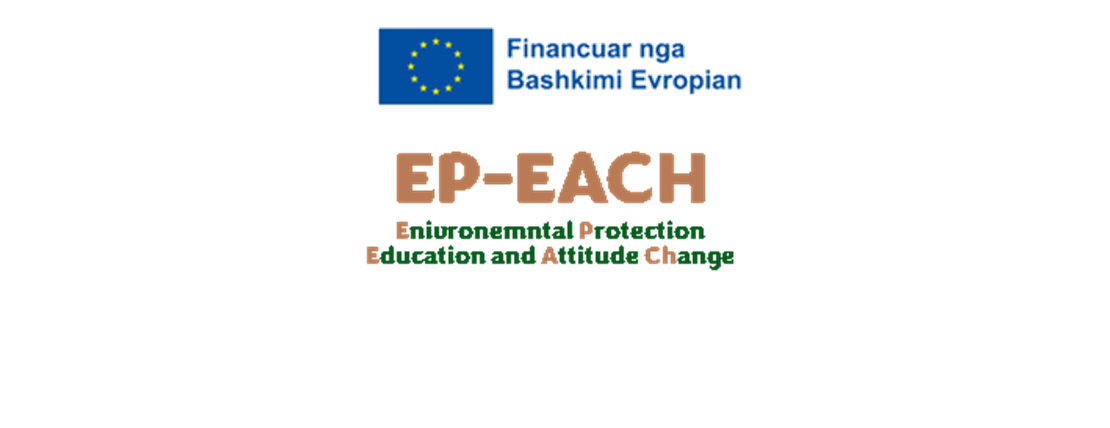
Environmental Protection - Education and Attitude Change
SUMMARY Project Title: Environmental Protection – Education and Change: Education and Behavioral Change towards the Environment (EP-EACH)
Lead Applicant: Institute for Nature Conservation in Albania
Co-Applicant: SHKPSH (Albanian National Parks Association)
Associated Partner: UNICEF, UNICEF Office in Albania
Duration: 36 Months (Start Date: 01/01/2025)
Overall Objective: To strengthen the role and capacities of CSOs in three regions (Kukës, Elbasan, Vlorë) to influence, raise awareness, and support behavioural change for the protection of the environment, biodiversity, and climate change adaptation.
Result 1:
Targeted CSOs in the three regions enhance their knowledge, skills, and capacities to engage in environmental initiatives in collaboration with schools and communities, while improving their organizational and networking abilities.
Activities:
- Establishment of a CSO Network for Environmental Education, involving local and national organizations to participate, engage, and organize within a dedicated network.
- Capacity-building trainings and workshops for CSOs in pilot areas to improve internal organizational structures and their ability to undertake concrete environmental actions.
- Regional networking meetings to exchange experiences and facilitate CSO access to information.
Result 2:
Innovative and foundational tools for curricular competencies and teaching materials for environmental education are improved and implemented through constructive CSO engagement in supporting teacher accreditation.
Activities:
- Assessment and revision of curricular objectives related to environmental education.
- Development of training curricula and materials for environmental education in schools, including at least one teacher’s guide and student worksheets, in collaboration with national education institutions.
- Implementation of Training of Trainers (ToT) with CSOs and teachers using the Child-to-Child and Green School methodologies in all three target areas.
- Environmental Kits for Youth (EKY).
- Organization of cluster activities (school-based activities and open classes) for environmental education with trained schools.
Result 3:
A program connecting schools, government institutions, and communities for environmental benefit is established, with targeted CSOs engaged in joint CSO-school-community actions.
Activities:
- Development of a cooperation platform between local schools, local authorities, and CSOs to promote schools as centers of awareness and action for addressing environmental issues.
- Design and implementation of capacity-building trainings and workshops for CSOs and local authorities/stakeholders on identifying and addressing environmental issues.
- Support for municipalities in selected regions to implement “Local Youth Councils,” applying engaging mechanisms for youth participation in learning through field-based activities.
- Development and implementation of a grant scheme to support local CSOs in enhancing their capacities and autonomy to engage in joint actions with schools, students, communities, and local governments to address relevant environmental issues.
Environmental education, practiced through joint collaboration between civil society organizations (CSOs), schools, local governance, and the private sector, emerges as a new teaching method oriented toward changing habits, attitudes, and social practices, seeking solutions to the socio-environmental degradation affecting the contemporary world. Unlike environmental information, environmental education simultaneously encompasses two parallel lines: raising awareness of environmental issues and promoting joint initiatives and engagement to protect or improve environmental conditions.
This initiative lays the foundation for an educational system that prepares children equipped with environmental competencies from the curriculum, promoting positive attitudes toward the environment and acting to improve it at school, at home, and in the community. The project will promote the “Green Schools” methodology for implementation in the Albanian education system. The “Green School” concept is an innovation already being implemented in basic education schools across European countries, as a new form of making the learning process more engaging and integrating students into various activities that encourage independent action and contact with the environmental realities in which we live.
The project will improve children's well-being and ensure their right to the highest attainable standard in Albania (in accordance with the Convention on the Rights of the Child), while preventing further environmental degradation in the country. This initiative will provide mechanisms to support “Local Youth Councils” and promote youth participation in environmental protection.



